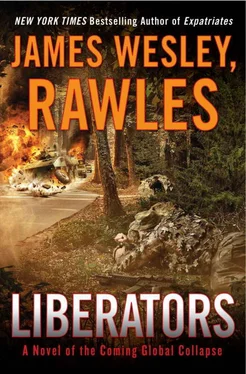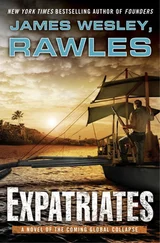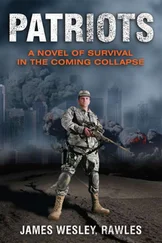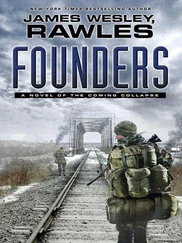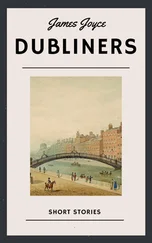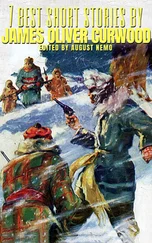“Aaron, this is my fiancée, Megan.”
“Pleased… to meet you… ma’am.” Aaron was taking long breaths as he spoke.
Megan was immediately disarmed by Aaron’s apparently poor health, and she returned the pleasantries. “Aaron, we’ll go first and let you catch your breath.”
Joshua held his shotgun across his lap with one hand and held Megan’s hand with the other as he spoke. “We’re from the D.C. area and have made it this far, by God’s grace. We were traveling by vehicle and making better progress, but we’re on foot now and have chosen to over-winter here in the state forest on our way to Danville.” Aaron nodded politely to show that he was following along, and Joshua continued cautiously, considering OPSEC. “We haven’t gotten any news since we crossed the Kentucky state line and went into hiding. Our hope is that the awful chaos that we saw on our way here will have subsided by springtime.”
“That’s… a bit optimistic.” Aaron chuckled between gasps for air.
Megan interjected, “Perhaps it is, but God has shown His providence so far. We have escaped danger, kept warm and dry, and up until now undiscovered as far as we can tell. However, we have many questions for you.”
“My condition is worsening rapidly, which is why I came out here to die.” Joshua and Megan sat up straighter upon hearing Aaron’s admission. “I’m originally from Louisville.” (He pronounced it “Lou’h-vull.”) After taking an audible breath, he continued. “I went to Baylor and later was ordained a Baptist minister, after which I became a chaplain in the navy. One day I was setting my notes on the pulpit to conduct an evening service at Mayport, and I didn’t have control over my own speech. Everything in my left peripheral vision and my right eye was blacked out, I lost my balance, and hit my head on the deck. I came to later when one of my parishioners, a corpsman, was standing over me. A few MRIs later and the docs told me that I had an inoperable diffuse grade-three brain tumor—an astrocytoma—and that I had cancer spreading into my lungs as well. My lead doctor advised me to get my affairs in order and only gave me eight or nine months to live. That was six months ago. You probably saw my sign that I was holding just now?”
Joshua and Megan politely nodded.
Aaron continued. “I came out here to die. I still have about nine months’ worth of food, fuel, and both antiseizure and pain meds in my camp, which is very well hidden. I have a cousin who is with the Cleveland Federal Reserve Bank. Last Fourth of July, at a family reunion, I told him that I was terminal. He said, ‘I have more bad news for you. So is the U.S. economy.’ He said that there would be a financial crisis no later than November, and that it would probably take down the stock market, the dollar, and probably the power grids, and that I needed to find myself a bolt-hole. I remembered this park, and I cashed out my IRA. Now I sit out on the road with that sign to talk with anyone who wants to talk about God. I share with them about Jesus.”
“Pardon the interruption, but have you seen other people on these roads?” Megan asked.
“Yes, they’re usually moving along on foot. That’s how I’ve managed to stay informed about the state of things, by asking for any news of the wider world as people pass through. I see very few cars, though. I had just enough gas in my truck to make it here, so it’s parked until the fuel starts flowing again, or the Second Coming happens, I suppose—but I don’t expect to live to see either.”
Aaron coughed into a handkerchief that had blood spots on it, and then he continued, “If you haven’t been in civilization since the Crunch, then you probably don’t know how bad it is out there. No gas, no electricity to speak of, wanton violence—I fear for anyone who is in a city. When the power went out and the trucks couldn’t roll anymore, that is when things got really bad!”
“Would you care for some filtered water, Aaron?” Megan could see that he was having trouble swallowing. Aaron’s hands shook badly as he took the canteen and poured water into his mouth, without touching the spout with his mouth, out of respect.
“Thank you,” he said.
Joshua spoke to give Aaron a chance to catch his breath. “Please, tell us about the political situation out there. Do we still have law and order?”
“No. At least not just law, and if you’re planning on staying in Kentucky, then know that you are now at ground zero. If you thought that D.C. was where power emanated from, then please allow me to amend your worldview. Last month a man named Maynard Hutchings by hook and by crook seized power at Fort Knox. Invoking the ‘golden rule,’ he then had his cronies pronounce him president pro tem, and he contacted the UN headquarters in Belgium.” Joshua and Megan were shocked and sat there with their mouths open as Aaron continued, “Don’t be alarmed if you see an increase in military troops running around here.”
Joshua added, “We did see the Kentucky National Guard at the state line—that seemed odd.”
Aaron looked equally shocked that they had been so insulated. “I’m not worried about good ol’ boys from Kentucky. They’re not going to loot and pillage their neighbors at gunpoint. No, for that you have to import troops.”
“Wait a minute!” Megan was thoroughly agitated at this point, “You mean to tell me that we have foreign troops on U.S. soil?”
“Foreign troops at the behest of the new provisional government here, some of them in American uniforms—wearing the UN patch, of course.” Aaron paused for effect. “You are in the middle of a civil war now, post–coup d’état. Fort Knox is the new capitol, and Kentucky is in the process of being ‘pacified.’ If you want to move west on foot, then I suggest getting smart on guerrilla tactics and covert movement. It’s none of my business, but how many of you are there in your group?”
“Not enough to be a sizable assault force,” Megan answered vaguely.
“I see,” said Aaron.
Joshua knew that Megan was in a completely different mind-set at the moment, but he offered his next question. “Aaron, might I assume that you are still an ordained minister?” Aaron nodded.
Megan looked at Joshua as though he had just spoken Japanese as he continued, “Tomorrow is Christmas. Do you have plans?”
“My schedule seems to be open all day, shipmate,” Aaron said.
“Chaplain, would you please marry us right here, tomorrow, say, at noon?” Joshua said as Megan—who was still enraged by the political situation—swung to the other end of the spectrum and tackled Joshua with a hug.
“I would be honored,” Aaron said.
“Thank you! We need to get back to our group now, but we’ll see you here tomorrow.”
“Indeed, friend. Indeed.”
Joshua and Megan shook hands with the chaplain, gathered up their poncho, and took a circular route back to their campsite with only a short pause for a tactically appropriate follow-up kiss.
It is painfully difficult to decide whether to abandon some of one’s core values when they seem to be becoming incompatible with survival. At what point do we as individuals prefer to die than to compromise and live?
—Jared Diamond,
Collapse: How Societies Choose to Fail or Succeed
Olympia State Forest, Kentucky—Late December, the First Year
On Christmas Day, with Megan’s sons and Malorie as witnesses, Joshua and Megan were married. Joshua made solemn vows to protect and provide for Megan, which under the circumstances had great significance. After the chaplain gave his blessing and invocation, he said: “I’d like to give you a wedding gift, but it comes with a price.”
Читать дальше
